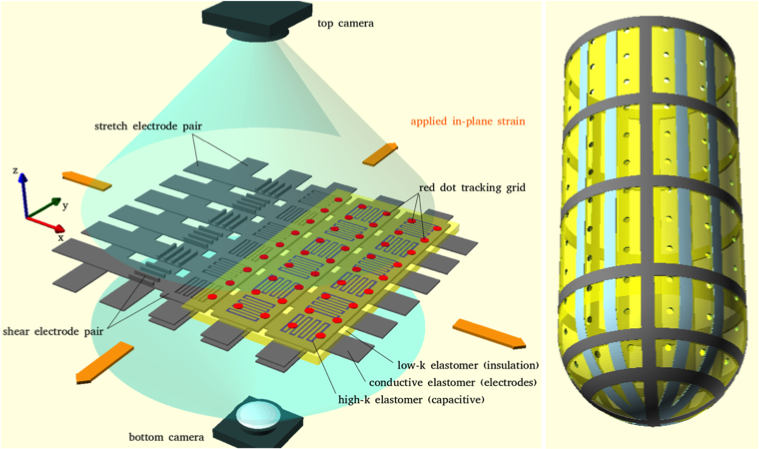Funding for new research on digital technology and materials for prosthetics
06 February 2018

The Institute of Making is delighted to receive funding for four new research projects that will focus on 3D and 4D printing platforms for producing prosthetic and orthotic liners, investigate how stretchable sensors embedded in liners can provide realtime computational feedback for management of comfort and skin health in users, and design and manufacture affordable body-powered prosthetics. These new awards continue our innovative research in material selection, design and digital manufacturing of prosthetics and orthotics. As part of these projects, we are excited to work closely alongside our partners in the Global Disability Innovation Hub, and with colleagues at universities throughout the UK and globally.
=============================================================
Funded by a CNIE "Inspiration" Grant, Dr Anna Polszajski is leading a project to create a 4D printing platform to manufacture bespoke liners with actuating pores for prosthetics and orthotics wearers to regulate their skin temperature and moisture levels. This six-month pilot study will lay the foundations to overcome some of these challenges and to create prosthetic skin-liner integrating nanoscale chemistry with microscale mechanics.
PhD student Ben Oldfrey and Prof Mark Miodownik have been awarded funding from the Medical Devices and Vulnerable Skin Network to work on a technology that combines existing stretchable sensors with realtime computation to create an intelligent system that adapts to the user allowing them to monitor the vulnerability of their skin to damage.
Results of this study will be applied in a third project, funded by Starworks, to develop a bespoke liner for a child prosthetic wearer using 3D scanning technology, 3D printing, and stretchable sensors in a liner with realtime data feedback. Rapid growth of child prosthetic users adds an additional engineering challenge to creating a liner with good fit and comfort. The logging of data from the sensors used in the liner will allow clinicians to track the changes in stump size both during the day, and over the long term to aid the management of comfort and fit of a prosthetic.
Finally, we are delighted to have recently been awarded £1.4 million by the EPSRC to investigate material selection, design, and manufacture of affordable body-powered prostheses for lower and middle income countries (LMIC). This project is led by Prof Laurence Kenney (Salford), with Dr Cathy Holloway (Global Disability Hub) and Prof Mark Miodownik (Institute of Making) as research investigators from UCL, and with collaboration from colleagues at Salford, Greenwich, Southampton, the University of Jordan and Makerere University in Uganda. Body-powered (BP) prostheses have seen little development since the early 20th century, but are well suited for use in lower and middle income countries because they are potentially simple to manufacture and maintain. If the reasons for rejection (e.g. limited functionality, cost and heat-related discomfort) can be addressed, BP prostheses offer a potentially viable solution. Therefore, this project will bring together an experienced team from across the UK, Uganda and Jordan to create a new BP prosthesis that is optimised for adoption by LMIC prosthetic services and acceptable to LMIC users. This will include establishing methods of fabrication, fitting and evaluation of the prosthesis which are appropriate to LMICs.